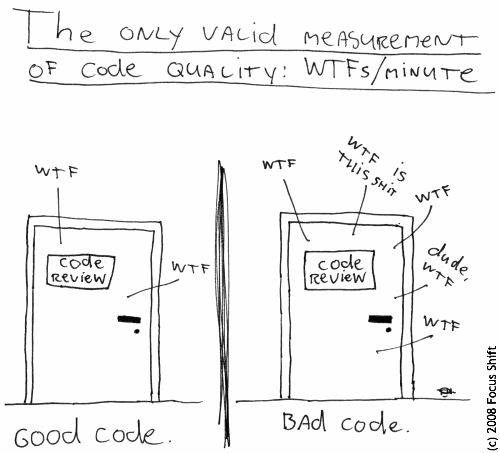Recently
Tuesday, 1 September 2015 · 12 min read · thoughtsFall in love with the problem, not the solution. Try to find a market and a problem that you are passionate about solving.
A new semester appears! New classes, new side projects. I’m taking some really interesting modules this semester and embarking on a new project.
Reading/Listening
- Data Science: It’s Easy as Py!
- Python For Data Analysis
- Sand Piles and Software
- How to Performance
- Support Vector Machines with JRuby
- Doing Terrible Things To Your Code
- Projects and Companies

- Who’s Your Coding Buddy?
- Postgres Guide
- Fast Ruby
- The Art of the Command Line
- Mostly Adequate Guide to Functional Programming
- A Clearbit Signup - Behind the Scenes
- Docker and CoreOS at Clearbit
- Tilt’s Behind The Scenes
- Humans Need Not Apply
- How to Run User Interviews

- Kleiner Perkins’ Internet Trends
- 57 startup lessons
- How Databases Work
- New YC List. It’s always interesting to see the latest YC startups.
- Zapier Interview
- Various ML Approaches. Doing more ML this semester.
- Dev Marketing Guide
- Migrating from Heroku to AWS (using Docker)
- Marc Andreessen’se guide to startups. On the distinction between product and market.
In a great market – a market with lots of real potential customers – the market pulls product out of the startup.
- FareHarbor’s bootstrap success
- Cheap marketing tactics
- Infographics for Entrepreneurs
- How to do product discovery.. THIS. IS. WHAT. I. NEED.
- Understanding the problem you’re trying to solve is key to being a great engineer.
- Your Job As a Founder Is to Create Believers
- Michael Giacchino’s Inside Out OST is really good.
Thinking

- Iterating towards perfect is better than not doing something unless it’s perfect.
- The day has arrived when client-side JS code is now obfuscated to protect intellectual property. This actually solves one of the main problems I had some time ago. I’m guessing FullStory would be using this. ;P
- Maybe building and selling for the enterprise isn’t so bad after all
- My ML and Computational Biology classes this semester are interesting beyond my expectations. Maybe I’ll work on something similar to Benchling.
- I had no idea drones/UAVs have a thriving open source software ecosystem already!
- There’s even a local UAV company.
- Only the paranoid survive.
- You need to shorten learning curve. Find mentors, read books. Attend seminars, listen to people, etc.
- It’s so so very easy to build something nobody wants.
- I feel that my failure with SheetHub is largely attributed with me falling in love with my solution to a problem I THOUGHT existed. I got the order all wrong. It’s much closer to: Market > Problem > Solution. Find the problem first, know the market… and only sell to a market you understand.
- A fledgling startup exists solely to arrive at product-market fit.
- No business plan survives contact with the customer.
In your day to day… over the next month, when you come across something inefficient, or stupid, save that idea somewhere - save it in a notebook. Then one day in a a month or so you’ll have a list of problems. From there you can make a list of invention ideas.
- Had the opportunity to pick the brains of founders of growth-stage startups PropertyGuru and Reebonz. Very, very educational.
- StichFix has a very solid data + engineering team. How can we make more companies thrive this way?
- I’ve been reading a lot on postmortems of companies (Songkick, Soundcloud) migrating from Rails Monoliths (aka. Monorails) into SOA. Also experimenting with RabbitMQ.
- I watched Disney Pixar’s Inside Out and realized the importance of sadness in building relationships. Also, there’s nothing wrong with the wrong things in life. They help you grow and learn as a functional human being. Not everything is sunshine and rainbows but you need to embrace the good with the bad in life. It’s part of growing up, and it’s a powerful message.
Guitar
Elsewhere
- Have been tring out the Jupyter Notebook, a language-agnostic fork of the IPython notebook for Ruby stuff. Pretty sweet for interactive documentation.
- I really want to give a talk about Jupyter + sciRuby. Will eagerly wait until Jupyter 4.0 is stable.
- Actively working on Flocale. BotSquad on hold.
- More class projects and assignments, less hacking time
- Here’s a quote from Justine Musk:
Get deeply, intensely curious about what the world wants and needs. Ask yourself what you have the potential to offer that is so unique and compelling and helpful that no computer could replace you, no one could outsource you, no one could steal your product and make it better and then club you into oblivion (not literally). Then develop that potential.
Choose one thing and become a master of it. Choose a second thing and become a master of that. When you become a master of two worlds (say, engineering and business), you can bring them together in a way that will a) introduce hot ideas to each other, so they can have idea sex and make idea babies that no one has seen before and b) create a competitive advantage because you can move between worlds, speak both languages, connect the tribes, mash the elements to spark fresh creative insight until you wake up with the epiphany that changes your life.
📬 Get updates straight to your inbox.
Subscribe to my newsletter so you don't miss new content.